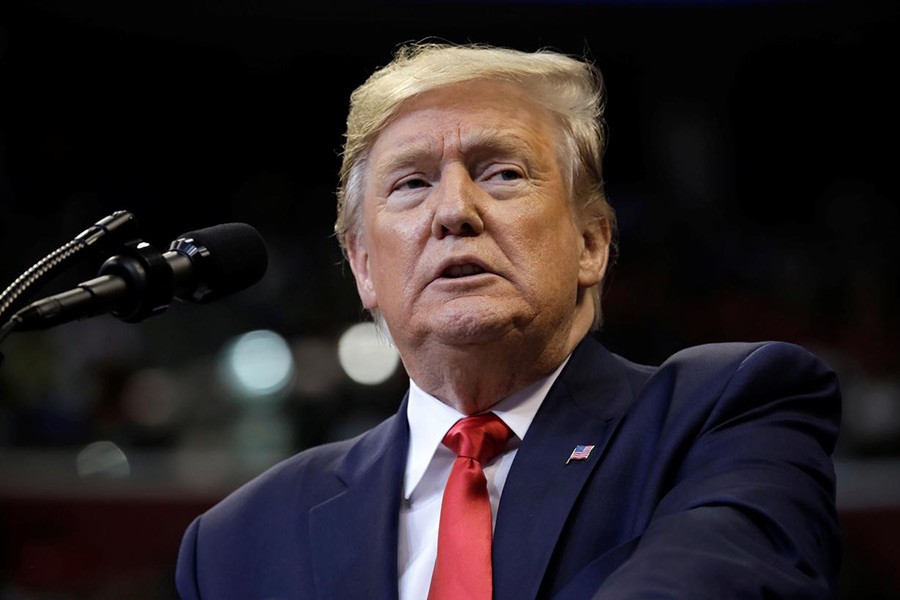Democratic lawmakers in Congress of the United States will take a big step this week in what appears to be a now inexorable march toward impeaching US President Donald Trump, with the start of hearings seen as a precursor to formal charges being announced within weeks.
With opinion polls showing Americans bitterly divided over whether to impeach Trump, the Democratic-controlled Judiciary Committee in the House of Representatives will hold a hearing on Wednesday to explain to the American public what constitutes an impeachable offence.
It will also receive a report from the House Intelligence Committee laying out the evidence Democrats say shows Trump abused his office for personal political gain.
Democrats, who control the House, have been investigating whether the Republican president pressured Ukraine to investigate political rival Joe Biden, a former Democratic vice president who is seeking his party’s nomination to face Trump in the 2020 presidential election, and his son Hunter Biden, who had been a board member of a Ukrainian energy company.
The impeachment inquiry has heard testimony from current and former officials that military aid was withheld from Ukraine and that a White House meeting with Ukrainian President Volodymyr Zelenskiy was conditioned on the investigations being carried out.
Trump has denied any wrongdoing and says a July 25 phone call with Zelenskiy, in which he pressed for the probes, was “perfect.” He and fellow Republicans say Democrats are seeking to overturn the will of the people in the 2016 election.
The judiciary panel will hear public testimony from four legal scholars on what constitutional basis a US president can be removed from office.
In a defiant response on Sunday night, the White House informed Democrats that Trump and his lawyers would not participate in Wednesday’s hearing, citing a lack of “fundamental fairness.” The proceedings would have been the first direct involvement by the Trump camp in a process he has condemned as a partisan “witch hunt.”
But White House counsel Pat Cipollone did not rule out taking part in future proceedings if Democrats addressed a list of procedural complaints.
The committee, which is not expected to consider evidence against Trump until next week, has given the president until 5 p.m. (2200 GMT) on Friday to say whether he plans to mount a defence by calling witnesses and introducing evidence.
A DEEPENING DIVIDE
The Republican-controlled Senate, where any impeachment trial would be held, is highly unlikely to vote to oust Trump. Few Senate Republicans have shown an appetite for removing the president.
But the impeachment inquiry has cast a shadow over Trump’s already tumultuous presidency and sharpened the divide among Americans that is likely to intensify as election campaigning heats up in the coming weeks.
“We’re on an exercise with a very predictable outcome and one that’s going to divide the country further. It’ll be a live issue through the election itself, and the American people will make the final determination,” Republican Representative Tom Cole told Reuters.
Wednesday’s hearing, while academic in nature, will set the stage for the Judiciary Committee to begin determining whether Trump should face formal articles of impeachment. House Speaker Nancy Pelosi said in a letter to supporters last week that Trump had committed “bribery” and needed to be held accountable.
“Impeachment is the people’s last line of self-defence against a president who insists upon acting like a king and trampling the rule of law,” said Representative Jamie Raskin, a Democrat on the Judiciary Committee.
“We’ve had an intensive focus over the last several weeks on the facts,” Raskin said in an interview. “We are now about to revisit the basic values and structures of the American Constitution.”
Democratic aides said a vote on possible articles of impeachment would follow quickly on the heels of an evidentiary hearing.


